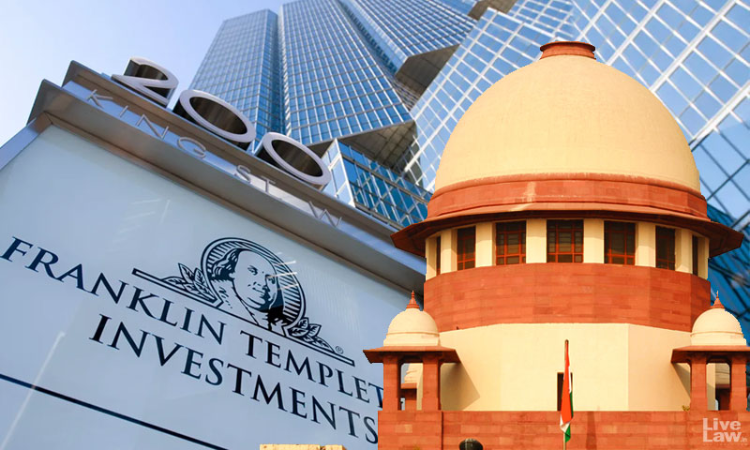Supreme Court Directs Distribution Of 9122 Crores To Unit Holders Under Franklin Templeton's Six Mutual Fund Schemes
Srishti Ojha
2 Feb 2021 5:32 PM IST

Next Story
2 Feb 2021 5:32 PM IST
The Supreme Court has on Tuesday directed that amount of 9122 crores that is cash ready with Franklin Templeton as on 15th January 2021 be distributed amongst the unit holders under the six mutual fund schemes. The Court has stated that the distribution is to be done in proportion to their respective interest in assets of scheme and will be undertaken by SBI Mutual funds as agreed by...
